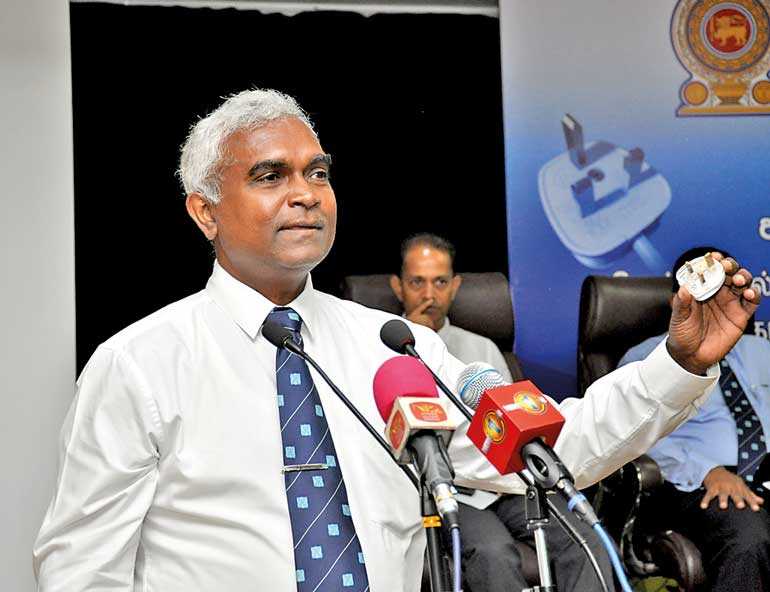Tuesday Feb 17, 2026
Tuesday Feb 17, 2026
Thursday, 29 November 2018 00:00 - - {{hitsCtrl.values.hits}}

By Ruwandi Gamage
The plan by the Public Utilities Commission of Sri Lanka (PUCSL) to ban the sale of round pin five amp and 15 amp plugs, wall sockets and related appliances countrywide from January, and retail only square pin, 13 amp plugs and wall sockets, ran into opposition this week with industry representatives slamming the regulator for failing to conduct adequate consultation and consider the higher expenses for consumers.
According to this regulation, round pin five amp and 15 amp plugs, wall sockets, multi-plugs, extension wires and any electrical appliances with the mentioned plugs are to be banned from being sold in shops. This move is to put forth a single standard for plugs and socket outlets and for 13 amp plugs and socket outlets (square pin) to be the only national standard used in Sri Lanka.
“Since only 13 amp plugs, socket outlets and electrical appliances with 13 amp plugs will be available in shops effective from 1 January 2019, when the consumer buys any new electrical appliance they will also have to purchase a ‘one-to-one converter’ so that the issue of plugging in a 13 amp square-pin plug to an existing five amp round-pin socket outlet will be eliminated,” Institute of Engineers Sri Lanka representative Dr. Tilak Siyambalapitiya explained as a PUCSL representative.
Dr. Siyambalapitiya further clarified that if any damage occurs to a round pin five amp wall socket outlet in the household, office or any non-industrial setting, the replacement of that will be a temporary six amp square pin wall socket. However, a different ‘one-to-one converter’ will then have to be purchased because the six amp square pin wall socket outlet will not fit with the 5 amp round pin plugs of existing electrical appliances.
Sankha Wahalawatta, a representative from the Steering Committee for the ‘Five and fifteen ampere ban’, claims that the committee has not even met once since the implementation to aid in the transition of implementing the single standardisation which is the 13 amp square pin plug and socket outlet.
“If there is a regulation that is being brought about, the practicality is not only to consult an expert committee but also to weigh in the feedback of the manufacturer and consumer,” he said.
Some of the SMEs that were present at the press briefing claimed that they were only made aware of this regulation about five months ago and that they needed more time to transition their business towards this change and asked for the due date to be postponed.
They also voiced their concerns regarding the long process that they are faced with to acquire the requisite SLS certification and claimed that most imported plugs, socket outlets, multi-plugs and extensions received SLS certification, without any overdue.
In response, a PUCSL representative detailed that the process to bring about this regulation was initiated back in 2015, where one public consultation was held by the PUCSL in which about 500 members of the public participated to voice their opinions about this regulation.
The Cabinet Paper was passed to bring about this ban by December 2017, which was further postponed until 1 January 2019. The PUCSL had explained that a relief period of two years for manufacturers and one year for importers were given to smoothen the transition towards implementing this regulation.
Pic by Lasantha Kumara